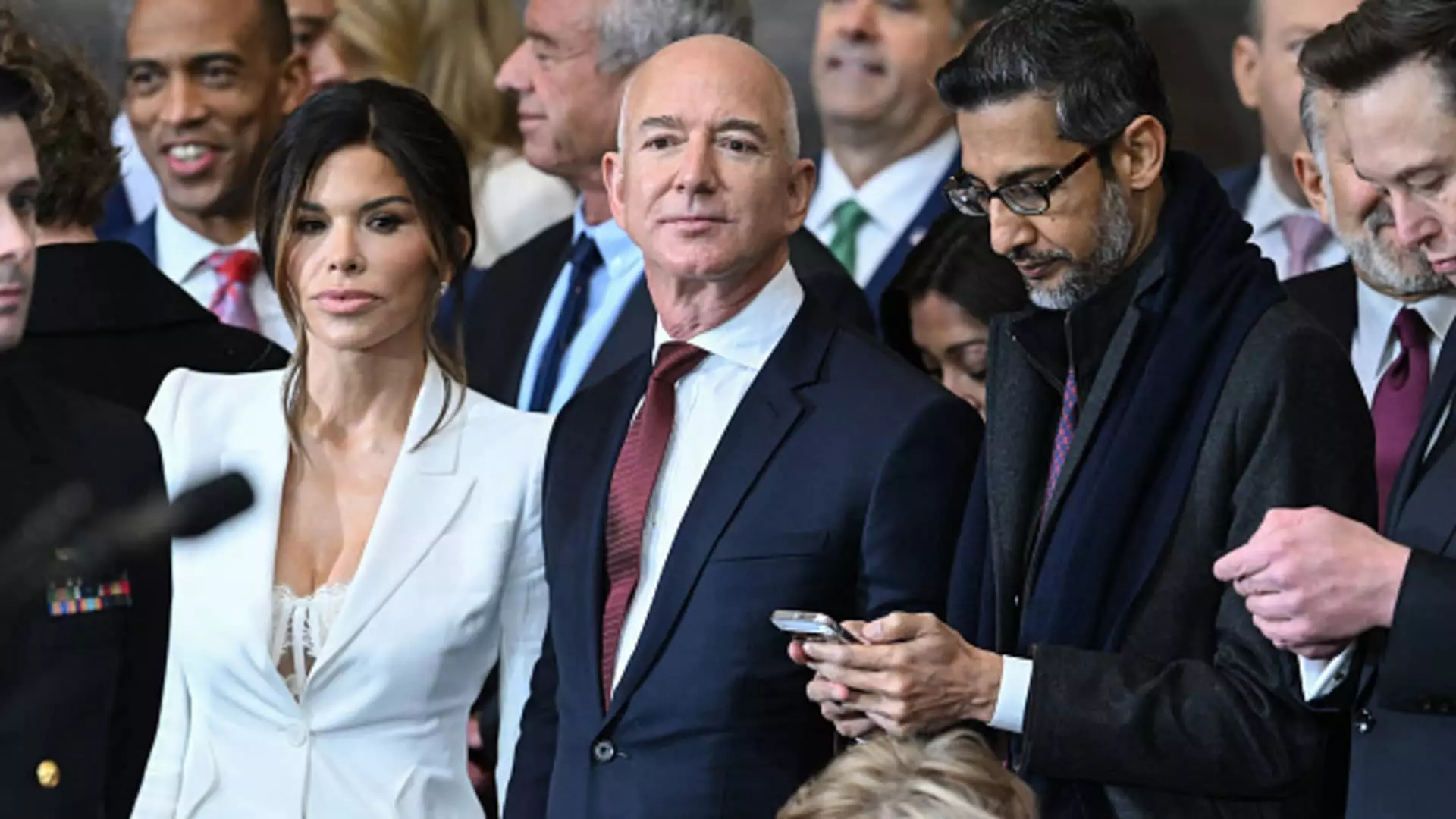Jeff Bezos, the founder of Amazon and owner of the Washington Post, has recently sparked controversy by announcing a significant shift in the newspaper’s editorial stance. In his communication to staff, he outlined that the paper would now focus on advocating for “personal liberties and free markets,” while explicitly stating that opposing viewpoints would no longer be welcome on its opinion pages. This decision not only raises concerns about the eroding principles of journalistic integrity and diversity of thought but also reflects broader tensions within the political landscape where media ownership and editorial independence are increasingly under scrutiny.
This pivot in editorial strategy comes just weeks before a momentous presidential election in 2024, with Karl Marx’s ideology of the bourgeois class taken to an extreme, where ownership increasingly dictates the tenor and focus of media discourse. Bezos’s insistence that “the internet does that job” suggests a dismissal of traditional media’s role in curating a spectrum of viewpoints—an approach that many believe is crucial to a functioning democracy. In an age where misinformation is rampant, the role of mainstream media as a platform for diverse opinions becomes paramount.
The immediate reactions to Bezos’s announcement reflect the polarized nature of today’s media environment. Some notable figures within the Trump administration welcomed his new focus, perceiving it as a validation of their own views and an alignment with a broader conservative narrative. Conversely, it incited outrage among employees of the Washington Post, including former editor Marty Baron, who expressed his disgust at the decision. Such backlash is indicative of a deeper conflict between ownership and editorial independence, a fundamental issue that has long plagued media organizations.
One notable development from this shift is the resignation of David Shipley, the editorial page editor. His departure emphasizes the severity of the editorial policy change—his unwillingness to lead under these new guidelines suggests a profound misalignment with the core journalistic values that stress objectivity and impartiality. The suggestion by Bezos that if a position wasn’t a “hell yes,” it had to be a “no” carries a connotation of intolerance for dissent within the organization’s ranks, potentially chilling voices that might have otherwise expressed critical perspectives.
The decision to eliminate dissenting views raises questions about the implications for democratic discourse. A free press has historically served as a watchdog, holding power to account and providing diverse viewpoints essential for a well-rounded understanding of public issues. By narrowing the focus to promoting specific ideological pillars, Bezos risks framing the Washington Post as a mouthpiece rather than an independent entity committed to journalistic rigor.
Additionally, reports of subscription cancellations follow closely behind the announcement, suggesting that this editorial shift may alienate a significant portion of the readership who expect a more balanced and representative dialogue. It poses a conundrum: will the Post be able to maintain its relevance and credibility while catering exclusively to a particular ideological demographic? Following the trend set by other media conglomerates under similar ownership dynamics raises alarms about a potential slippery slope diminishing the public’s access to diverse opinions.
Bezos’s actions are not unprecedented in the media landscape; however, this overt directive represents a marked departure from traditional journalistic standards. Historical precedents, such as Rupert Murdoch’s transformation of the New York Post, echo similar themes of editorial influence driven by ownership interests. What sets Bezos’s directive apart is its explicit nature, drawing a clear line around the types of views that can be expressed under his ownership.
Critics argue that such decisions not only corrode journalistic integrity but also serve to undermine the role media plays in shaping public opinion in a democratic society. The call for homogeneity in editorial content restricts debate and intellectual discourse, silencing voices that offer necessary critique and alternative viewpoints. The repercussions extend beyond the walls of the Washington Post, as the integrity of journalism as a whole is threatened, and the trust between the media and the public may be irrevocably damaged.
In terms of immediate responses from journalists at the Post, while some have assured that the news reporting would remain unaffected, others have expressed alarm at what they characterize as a significant infringement on the editorial integrity of the opinion section. The dissent within the ranks underscores the anxiety surrounding Bezos’s influence over journalistic content—raising crucial questions about the future of independent journalism in a landscape dominated by powerful ownership.
As we navigate an era characterized by polarized discourse and rapid technological advancement, Bezos’s editorial shift at the Washington Post is a critical reminder of the need to uphold journalistic standards that honor a diversity of thought. It invites readers to consider their relationship with media—what type of journalism do we value, and how can we advocate for an independent press that serves the broader interests of society rather than the ideologies of a select few? The future of journalism hangs in the balance, and the choices made today could have lasting implications for the ecosystem of public discourse.

